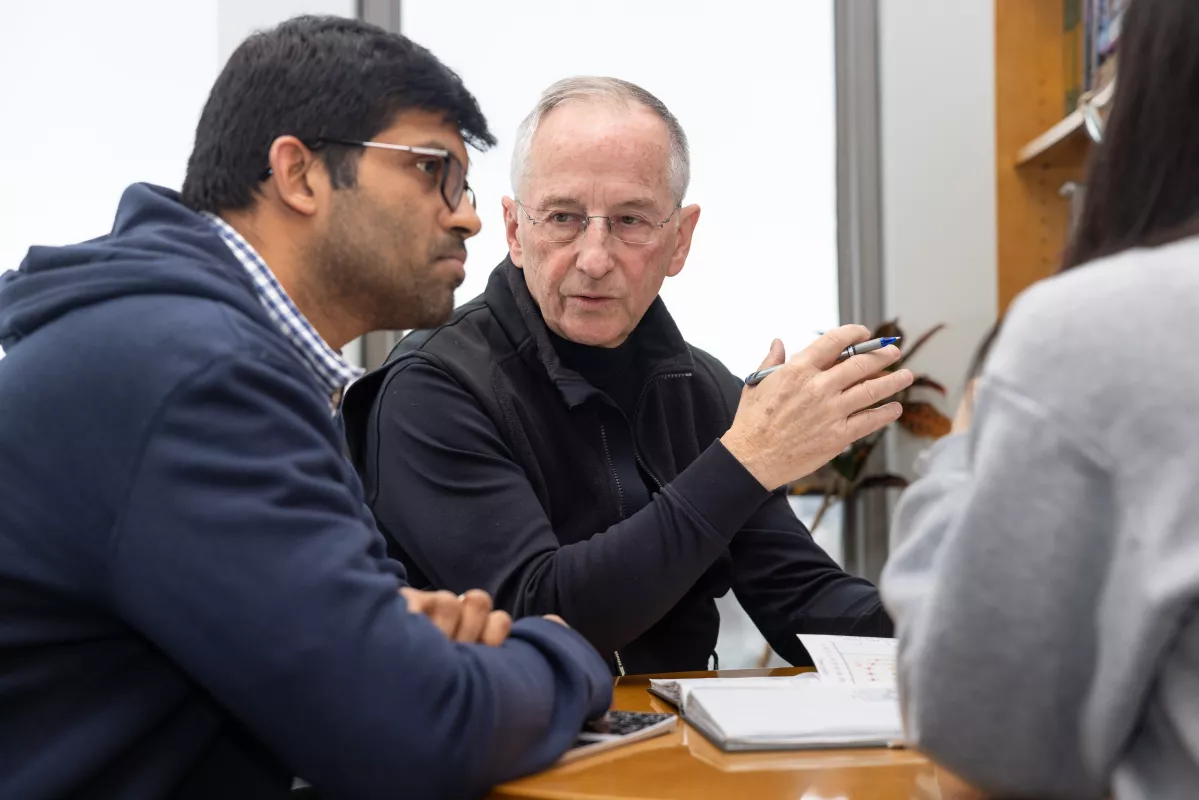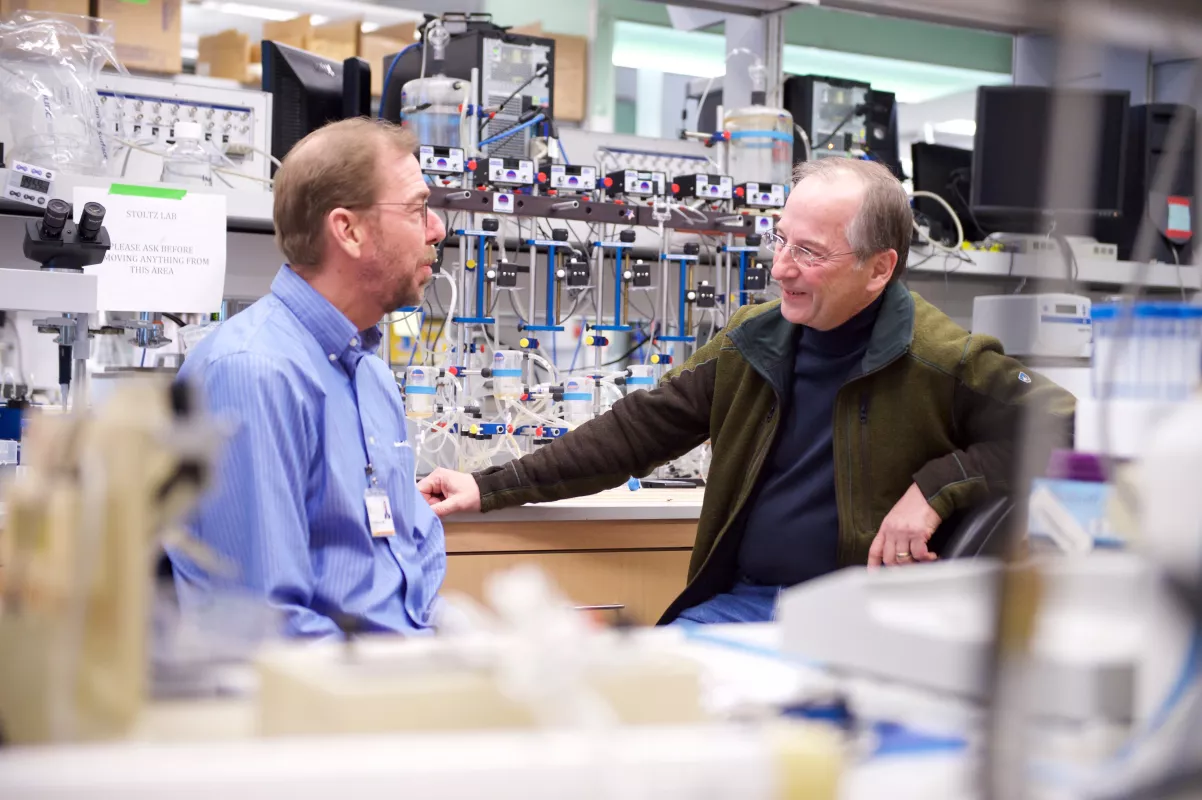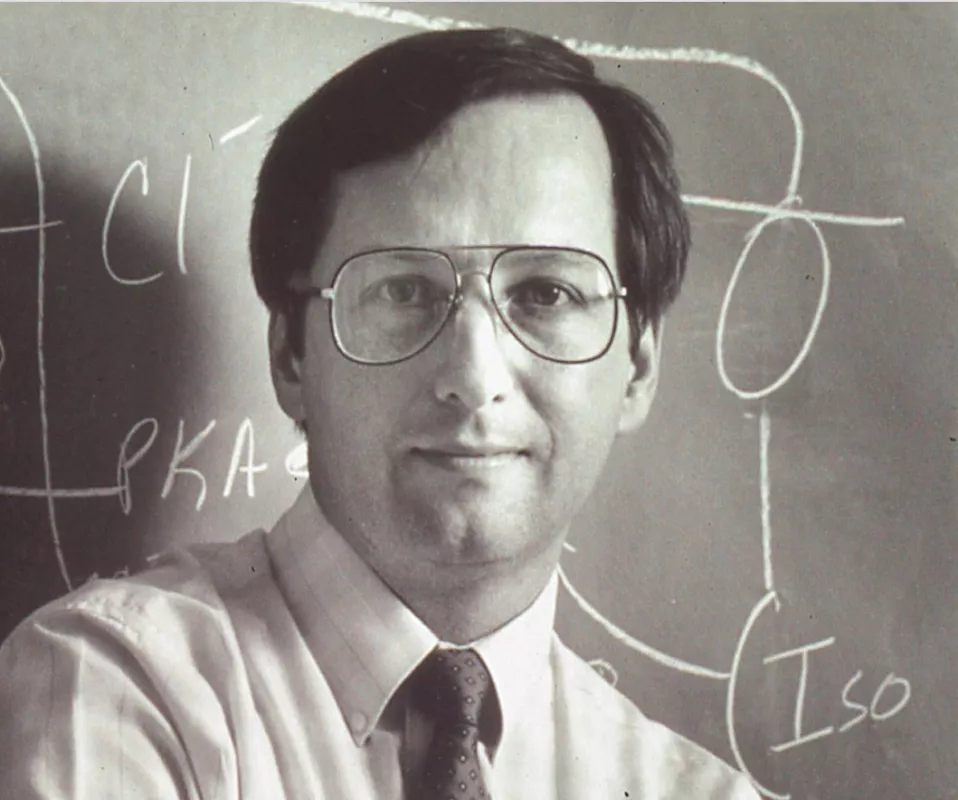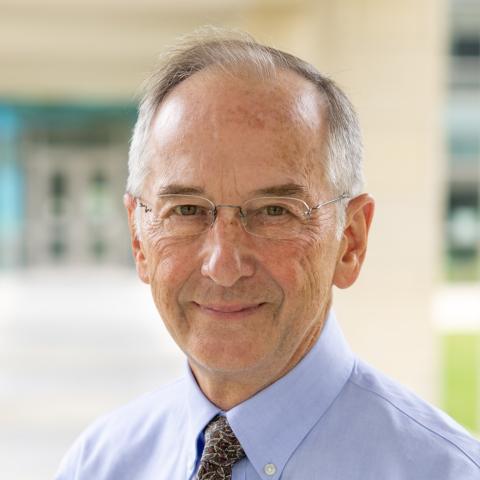
Curiosity and collaboration, leading to excellence
Michael Welsh’s research changed understanding and treatment of cystic fibrosis. His drive to learn and forward-looking approach exemplifies teamwork and shared success at Iowa.
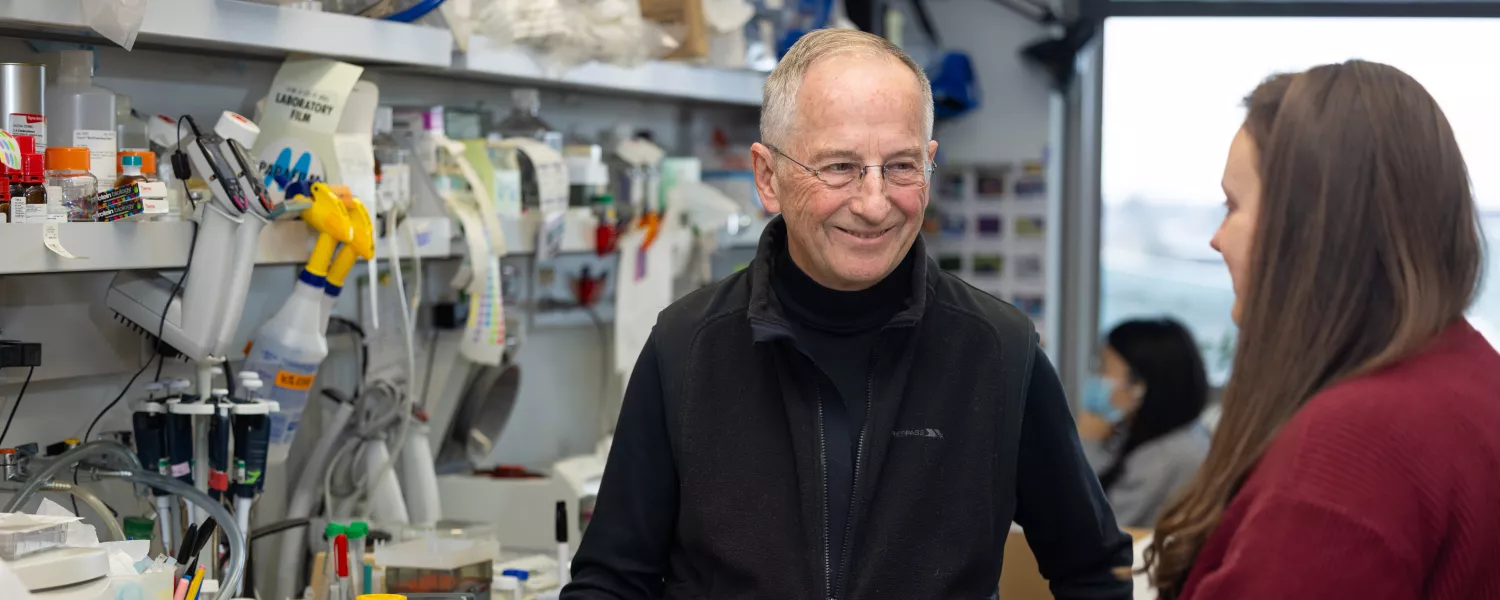
Curiosity.
It’s what Michael Welsh, MD, cites as a motivating factor at the heart of his extraordinary career dedicated to understanding the cellular and molecular mechanisms behind cystic fibrosis (CF).
It’s what brought life-saving treatments to thousands of people with a genetic disease that once had a near-universal prognosis of early death.
Through his work and within his lifetime—and in collaboration with University of Iowa Carver College of Medicine faculty colleagues, staff, students, and postdoctoral fellows as well as researchers at institutions around the country and world—Welsh has helped lead a revolutionary improvement in the lives of patients with CF. For these individuals and their families, what had been considered a terminal illness is now highly treatable.
His contributions to this major advance have earned Welsh many prestigious awards, including the 2025 Lasker-DeBakey Clinical Medical Research Award and the 2025 Canada Gairdner International Award. It’s worth noting that many recipients of these awards have gone on to receive Nobel Prizes.

Med School Moment Brings Sense of Purpose
For Welsh, his curiosity about how to better understand and treat CF began during his days as a medical student at Iowa in the 1970s.
“As a physician, there are certain patients you've taken care of who are just burned into your memory, and they stay with you your whole life,” he says. “One such person for me is a girl, about 7 or 8 years old, who I saw when I was a junior medical student here at the University of Iowa. She was coughing and speaking in short sentences because she was short of breath.
“I learned about all the things that she couldn't do because of her disease,” Welsh adds. “And then afterward, when we came out of her room, and I spoke with my attending physician, it was sobering because I learned that she probably was never going to make it to her teens, and if she did make it to her teens, she wasn't going to make it out of her teens.”
Meeting and caring for people with cystic fibrosis on the wards and in the clinics “made me want to use my investigation, my research, to make an impact on people with this disease,” he says.
Life in the Lab
Welsh’s encounters with cystic fibrosis patients sparked his interest in the dynamic way cells use a thin, protective layer of mucus to capture and flush away bacteria and other irritants from the lungs, bronchi, and windpipe. In people with CF, this mucus is thick and sticky and clings to cells instead of “bathing” them—clogging airways and contributing to shortness of breath and frequent lung and sinus infections. The thickened mucus from CF also affects the pancreas, blocking the flow of enzymes into the digestive tract. This, in turn, prevents the affected person from getting adequate nutrients from their food. This chronic problem in the lungs, pancreas, and other organs led to a very poor quality of life and was usually fatal by late adolescence.
Welsh’s work on the biophysics of lung cells affected by CF demonstrated that chloride ions were not moving across the membranes properly. As his team continued their work on cellular dynamics, other research teams attacked the problem from a different angle. It had been clear that CF was an inherited condition, and in 1989, the then-emerging field of gene mapping achieved a breakthrough: Researchers at two other labs identified the gene responsible for CF, which became known as the cystic fibrosis transmembrane conductance regulator (CFTR) gene.
“I benefited from the freedom to chase after these problems at the University of Iowa,” says Welsh who, in addition to leading his research lab, was also a practicing physician and instructor at Carver College of Medicine. “Before the gene was discovered, we had a general idea about the workings of cells lining the bronchi and how they transport chloride. Then Lap-Chee Tsui at the University of Toronto and Francis Collins, then at the University of Michigan, discovered the gene that is mutated in people with CF. This knowledge set the stage to further study the gene and its product, the CFTR protein. However, it took nearly a year for our collaborators and us to be able to produce the CFTR protein in the lab.
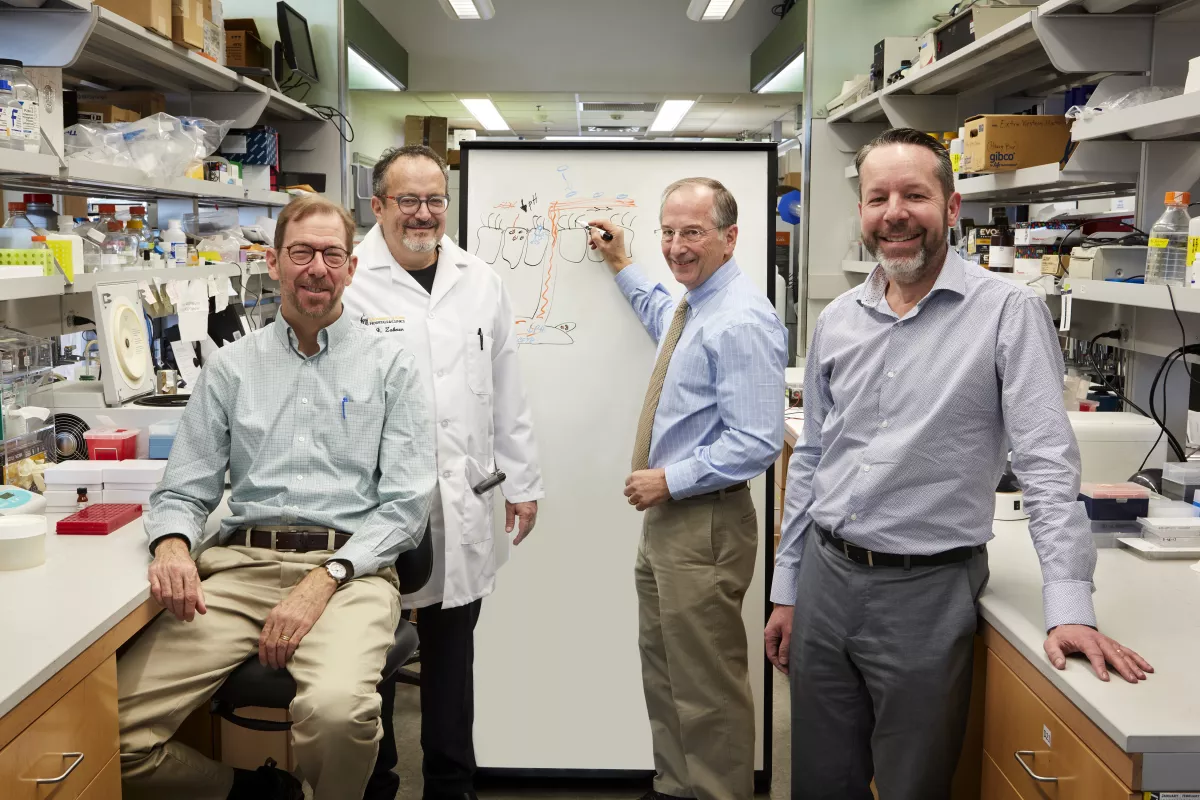
Honors
Michael J. Welsh, MD is the Roy J. Carver Professor of Internal Medicine and Molecular Physiology and Biophysics; Director, Pappajohn Biomedical Institute; Roy J. and Lucille A. Carver College of Medicine, University of Iowa; Howard Hughes Medical Institute Investigator from 1989 to 2024; and Director, Cystic Fibrosis Research Center
2018 Warren Alpert Foundation Prize
The Warren Alpert Foundation, in association with Harvard Medical School, honors trailblazing scientists whose work has improved the understanding, prevention, treatment, or cure of human disease.
2022 Shaw Prize in Life Sciences and Medicine
The prize was awarded for landmark discoveries of the molecular, biochemical, and functional defects underlying cystic fibrosis and the identification and development of medicines that reverse those defects and can treat most people affected by this disorder.
2023 Wiley Prize in Biomedical Sciences
Awarded by the Wiley Foundation, the prize honors scientific contributions that show significant leadership or innovation in the development of research concepts or their clinical application.
2025 Canada Gairdner International Award
The Gairdner Foundation’s annual awards celebrate the achievements of the world’s most creative and accomplished researchers whose work is improving the health and well-being of people around the world.
2025 Lasker-DeBakey Clinical Medical Research Award
The Lasker Awards was awarded for fundamental research on cystic fibrosis (CF), which paved the way to new therapies that have transformed the health and life expectancy of people with CF.
“One Sunday afternoon,” Welsh continues, “my postdoc came out to my house, and she showed me a gel. There it was— CFTR protein—we knew that we could now do key experiments. The next day, I went to talk to my chairman of the Department of Internal Medicine, Frank Abboud. I said, ‘Frank, I need to take a sabbatical.’ He says, ‘Yeah, that's good. When do you want to go?’ I said, ‘Tomorrow.’ ‘Oh, where do you want to go?’ he asked. And I said, ‘My lab.’ I was scheduled to attend in the ICU the next month, and I was very grateful that two of my colleagues stepped in and covered the ICU for me. I just needed that time to totally focus and put all my energy on that problem.”
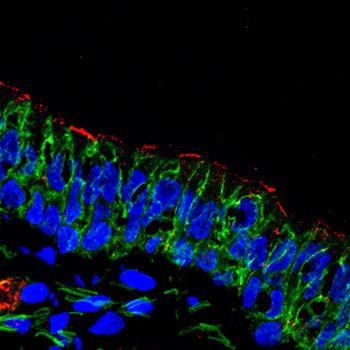
As a result of this “in-lab sabbatical,” and research over subsequent years, Welsh and his team discovered that CFTR forms a channel that lets chloride flow through, learned about ways that mutations disrupt its function, and discovered that they could repair its function in the lab. They published this understanding and shared the methods, which allowed Vertex Pharmaceuticals to ultimately translate this research into treatments that work directly on the CFTR protein and allow it to function properly.
Today, approximately 90% of cystic fibrosis patients can benefit from the new treatments, each refined to address variations in the way the mutations present themselves. Because of this revolutionary genetic medicine, CF can be addressed at the molecular level in ways that surpass earlier objectives of managing symptoms. Most CF patients are now living longer and with a significantly better quality of life.
Interactions with people who have CF have been important to the research, Welsh says.
“These patients have contributed in many ways. They have inspired us and participated in our studies. Our interactions with them, and knowing the difficulties and limitations they face, keeps our eyes on the ball.”
Welsh also notes the importance and impact of external funding on his and his colleagues’ research.
“None of this—not our work, nor the foundational discoveries that enabled our work, nor the CF drug development—would have happened without funding, primarily from the NIH [National Institutes of Health], and important support from philanthropic organizations, including the Cystic Fibrosis Foundation and the Howard Hughes Medical Institute,” he says. “Without this financial support, scientific progress and the development of the next generation of scientists, who will tackle additional diseases, would not be possible.”
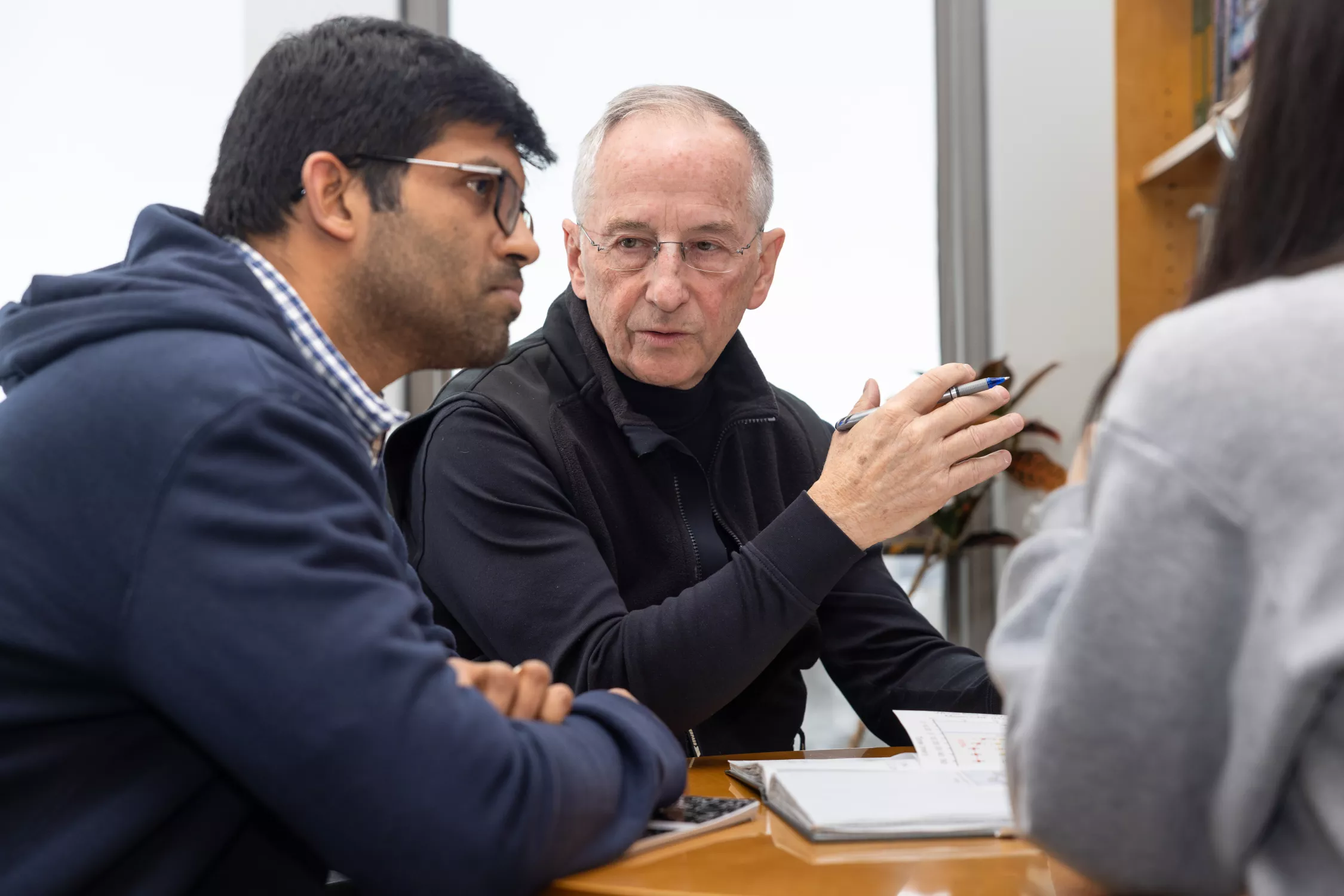
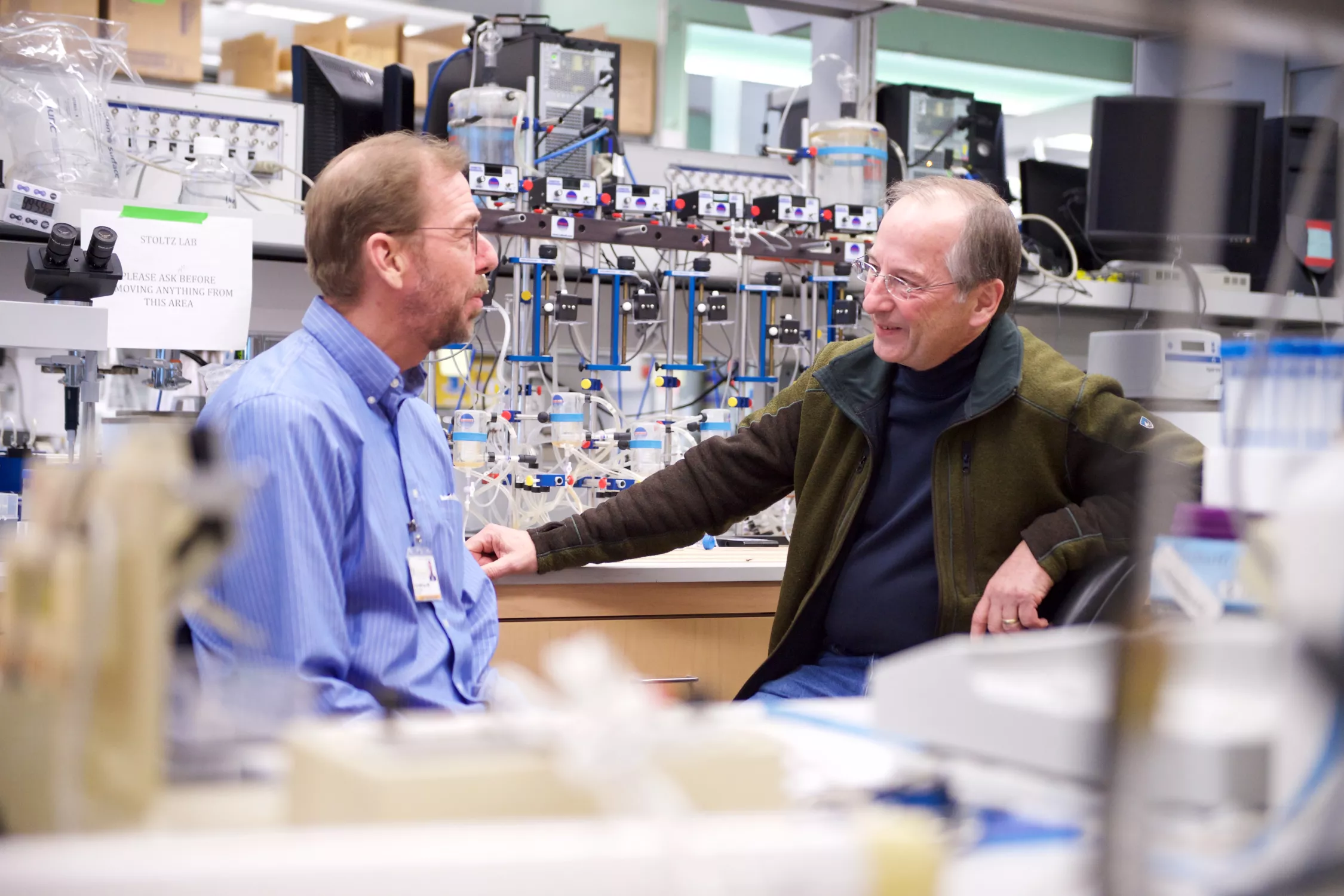
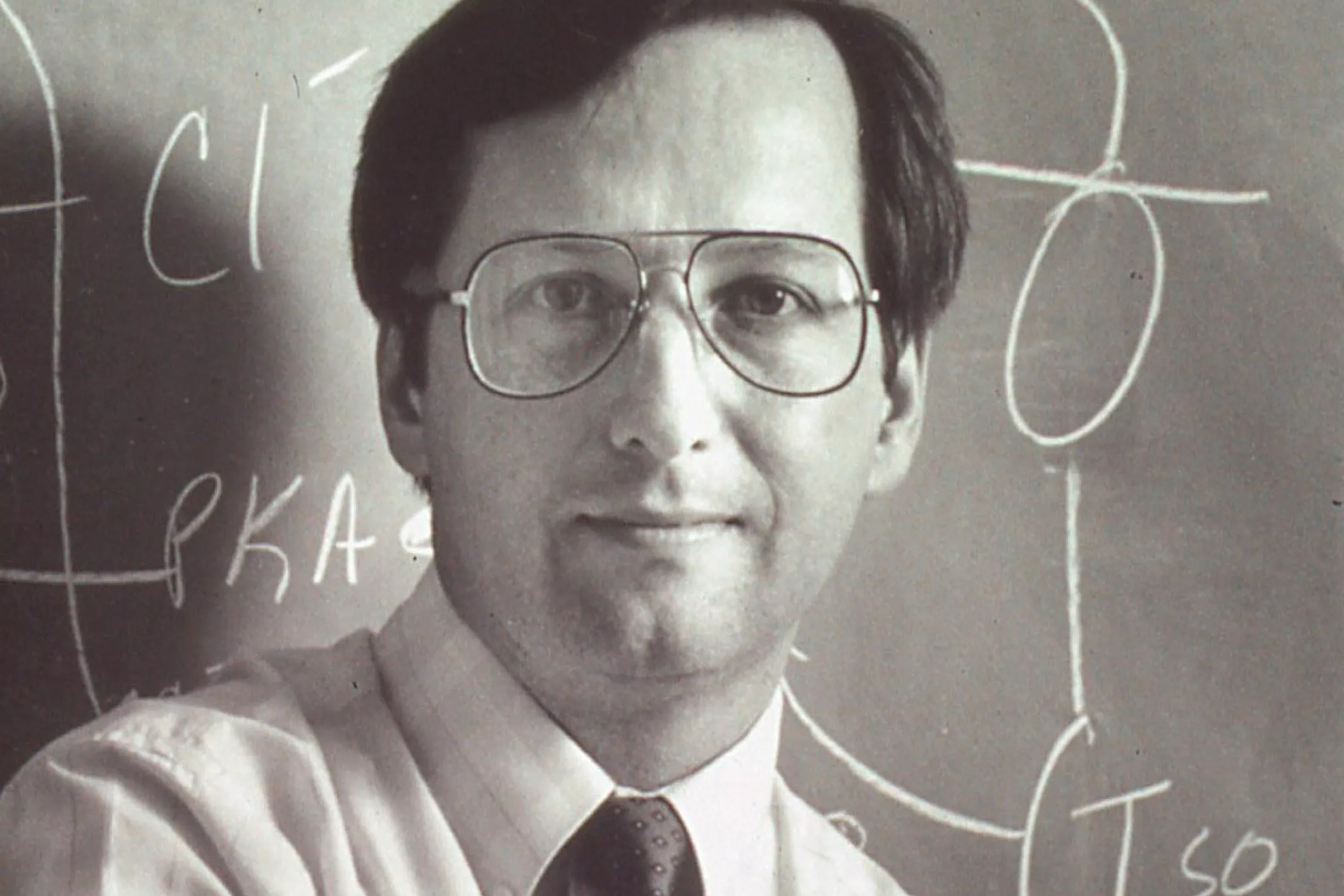
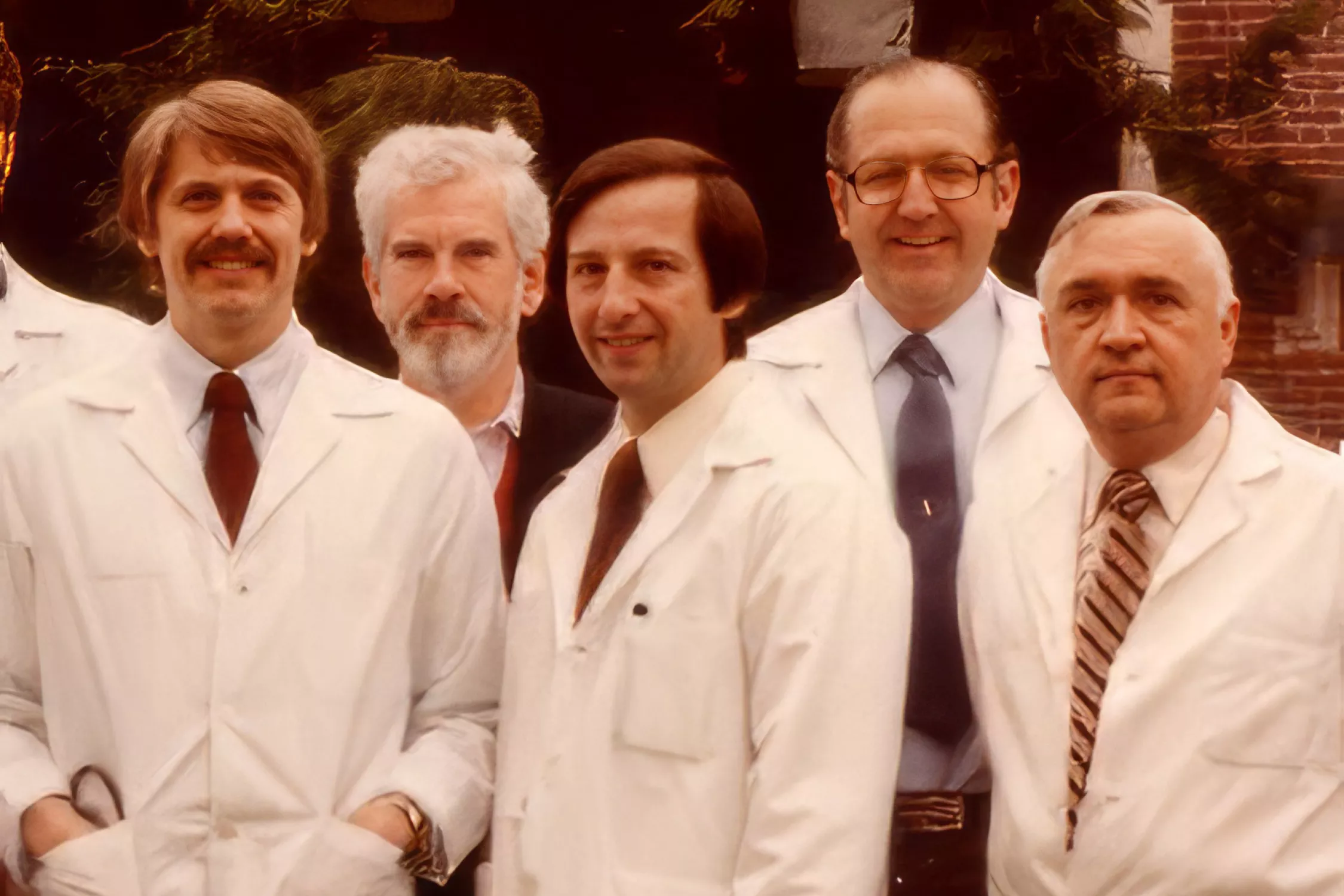
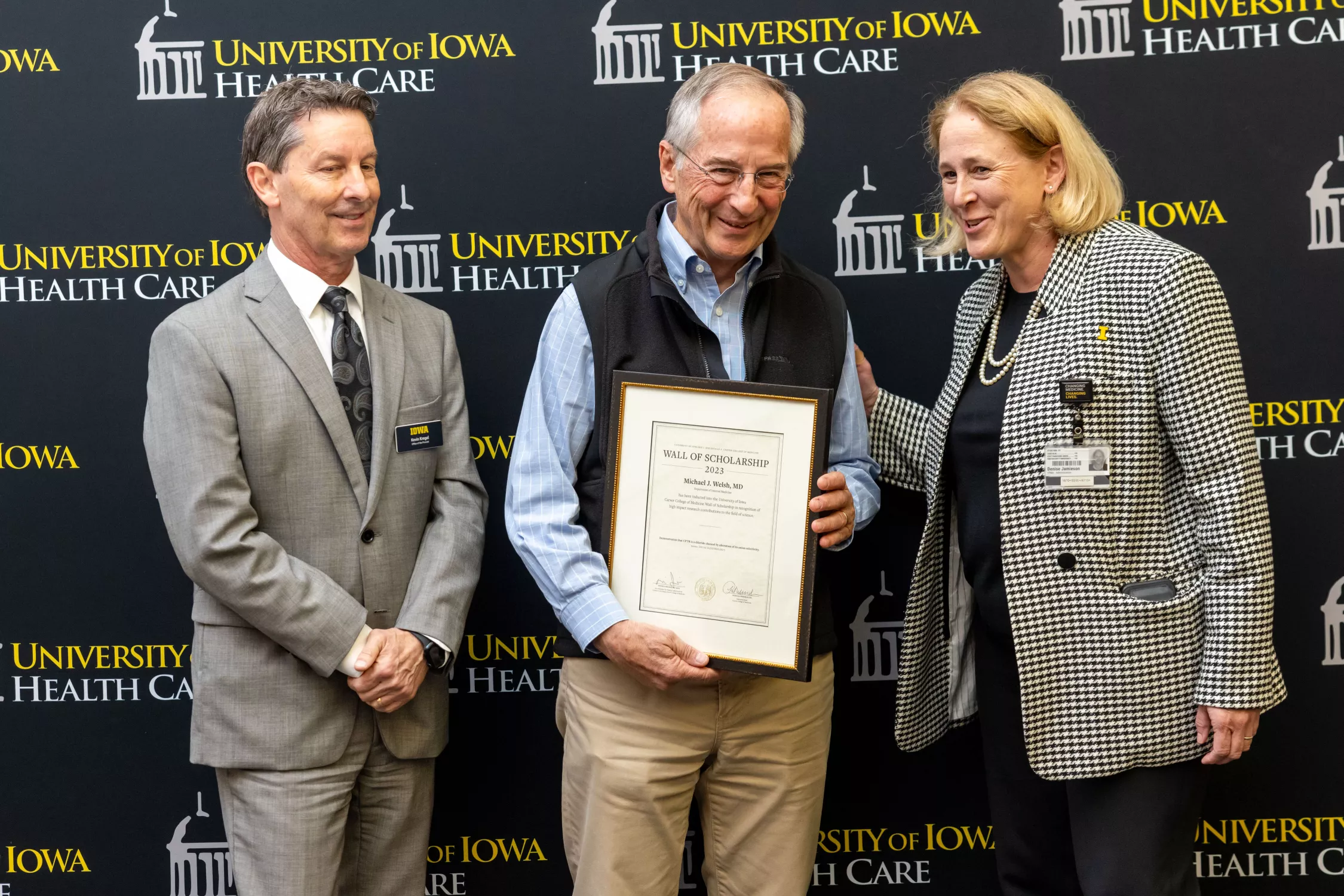
A Career of Commitment
Now in his fifth decade at Iowa, Welsh has had a significant impact, both academically and professionally. He serves as a professor and pulmonary physician in the internal medicine department and also holds faculty appointments in the molecular physiology and biophysics, neurology, and neurosurgery departments at the Carver College of Medicine. He is also the director of the Pappajohn Biomedical Institute, a cross-disciplinary community of researchers from across the university focused on understanding the fundamentals of biology and disease and applying this knowledge to develop real-world treatments and cures.
It is difficult to estimate the number of patients Welsh has worked with, students he has taught, and the faculty, staff, and postdoctoral researchers he’s worked with in his lab.
But through all these encounters, his drive to learn—spurred by a profound curiosity—has remained a key focus.
“Dr. Welsh exemplifies what it means to be a leader in biomedical research,” says Denise Jamieson, MD, MPH, UI vice president for medical affairs and the Tyrone D. Artz Dean of the Carver College of Medicine. “By thinking critically and remaining open to new ideas—and by teaching and encouraging others to join him in exploring new ways to understand and treat disease—he fostered a culture across the entire campus based on teamwork and shared success. His empathy and genuine interest in understanding a patient’s experience helped change the way we think about and take care of patients with CF. That’s a truly remarkable accomplishment. We’re so proud of his work and the fact that he chose the University of Iowa as the place to grow and achieve great things.”
Welsh has received many accolades and awards for his research on cystic fibrosis. But his curiosity and his delight in finding answers to scientific puzzles has led him to tackle a wide variety of research questions. For example, his work on ion channels fostered new understanding of touch, taste, and fear sensation. And his cross-disciplinary collaborations have led to discoveries in neurobiology that may have implications for Parkinson’s disease and Alzheimer’s disease.
While Welsh has been the recipient of many prestigious awards, he unfailingly recognizes his research team and the critical role they’ve played throughout his career.
“I'm the beneficiary of fantastic students and fellows, and tremendous staff, colleagues, and collaborators. Because no one does this alone,” he says. “It's incredibly important to surround yourself with people who are willing to challenge you, ask questions, and bring forth new ideas. It doesn’t matter whether someone’s a professor or a student. You have to encourage everyone to be critical and, importantly, to contribute, for that’s the way we make fundamental progress.”
“Sometimes, when we have an exciting new result, it’s difficult to pin down precisely where it came from and how it developed, because so many people will have made important contributions with their ideas, questions, and work. Together they have made something quite beautiful.”
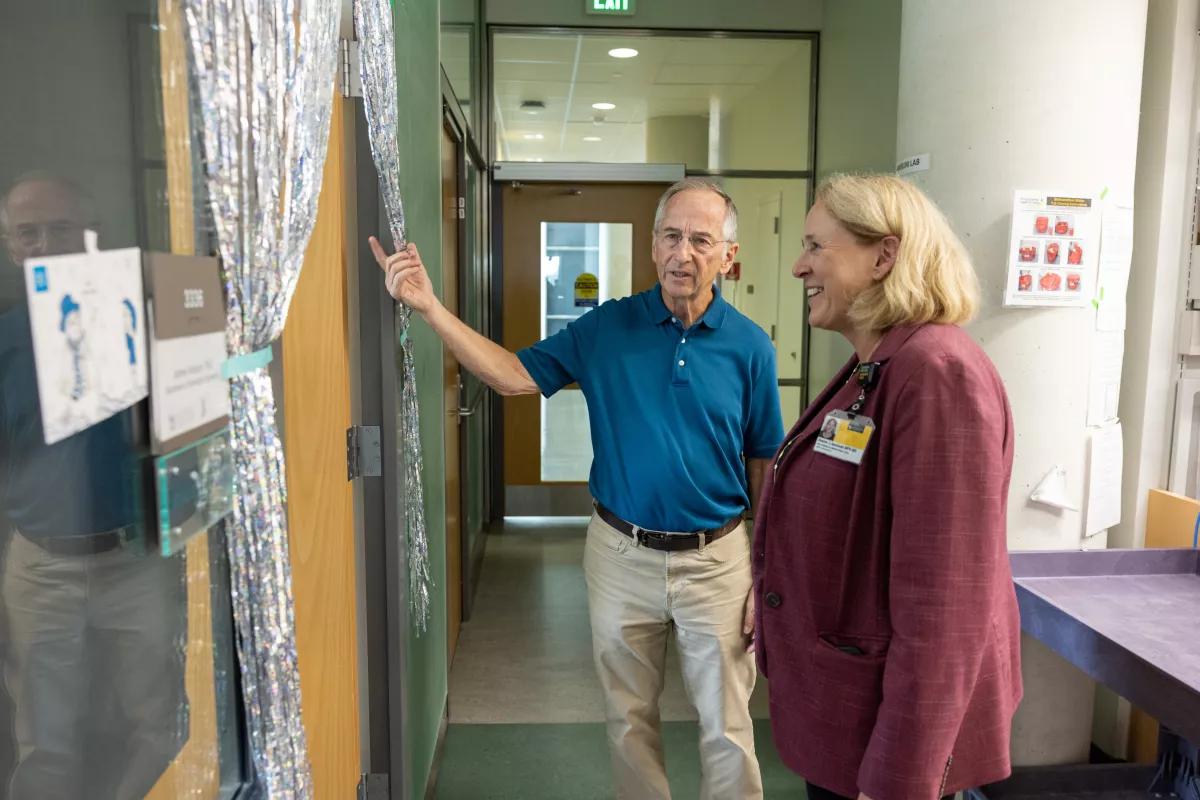
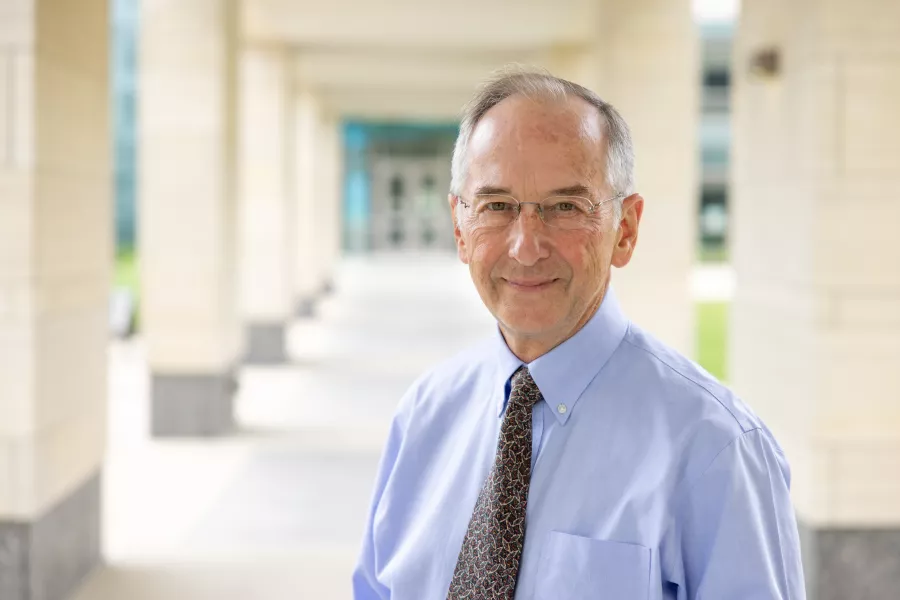
- Welsh receives Canada Gairdner International Award for cystic fibrosis discoveries
- UI researcher included in elite group to win global biomedical science prize
- Time Capsule: Michael Welsh is a global leader for discoveries on cystic fibrosis
- Welsh wins 2022 Shaw Prize in Life Sciences and Medicine
- Sleuths on the trail of cystic fibrosis
- UI’s Welsh among team of scientists sharing 2018 Warren Alpert Foundation Prize
